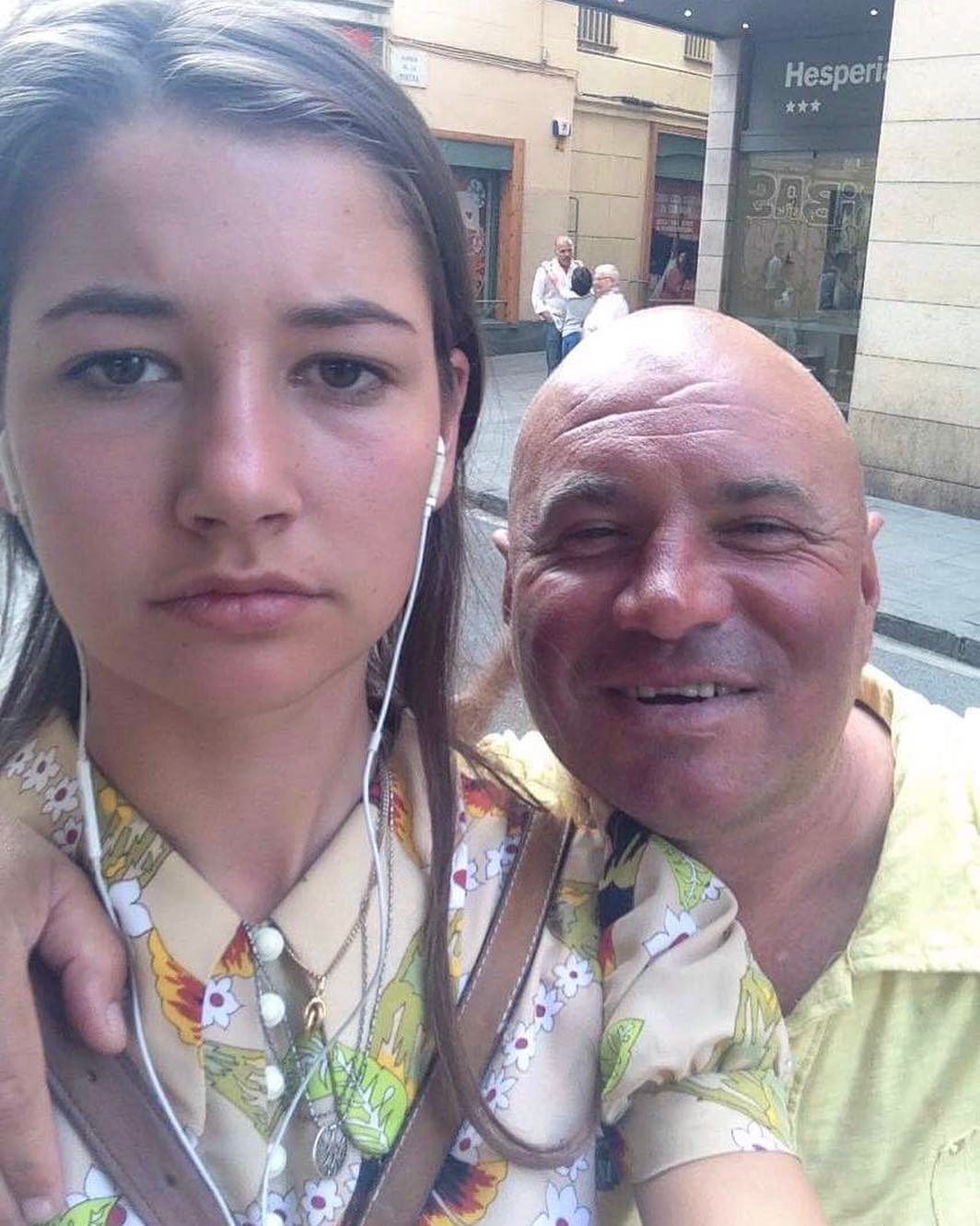Around the age of 27, after at least a full decade of being harassed on the street just about anytime I walked anywhere, I plucked up the courage to scream back “Fuck you!” – and just once, when I must have been feeling particularly bold, “How dare you make me feel so self-conscious!”. It’s not a good idea at all really, in case the man turns violent, which is a terrifyingly real possibility. But it feels better than bowing my head and marching on with my day, shaken and cowed, hot with embarrassment and sometimes in tears, chastising myself for putting up with it and doing nothing to remind these men that it is not acceptable.
Noa Jansma, a 20 year old student from Amsterdam, has found a better way. On the 29 August, Noa began an Instagram project she titled #DearCatcallers, taking selfies with every man, or group of men, who catcalled her for a month. In the captions, she often describes how the situation arose, and what the man said: “after following me for straight 10 minutes ‘sexy girl Where you goin’?? Can I come with you ?’,” “slowly following me 2 streets shouting ‘sexy!’ and ‘wanna come in my car?’,” “Ey sexygirl, Where are you going alone?”, “Hey girl, where are you going? [“Home”] With me? Where do you live? Think we can do fun things together,” “I know what I would do with you, baby”.
“#Dearcatcallers, it’s not a compliment,” Noa wrote in her opening post. “This Instagram has the aim to create awareness about the objectification of women in daily life. Since many people still don’t know how often and in whatever context ‘catcalling’ happens, I’ll be showing my catcallers within the period of a month.” The following 24 images show men of all ages, different races and aesthetics grinning, waving and giving a thumbs-up behind her; some are actively leering at her, and others are actually touching her. These images do not represent every time Noa was catcalled. Sometimes, she didn’t feel safe enough to take one.
Only one man asked Noa why she wanted to take a selfie. “They’re not at all suspicious because they find what they do completely normal,” she told Dutch newspaper Het Parool, as reported and translated by the Independent. Like many men around the world, they feel so entitled to the attention, and bodies, of women, that it doesn’t cross their mind that she is documenting their harassment of her. They feel no shame, and that’s the problem.
By boldly taking control of the situation, and setting its narrative on a different path, Noa is reclaiming her agency, and the ownership of her body. “By making the selfie, both the objectifier and the object are assembled in one composition,” she says, explaining. “Myself, as the object, standing in front of the catcallers represents the reversed power ratio which is caused by this project.”
Though Noa’s time at the helm of #dearcatcaller has come to a close, the project isn’t over. In a final message she writes, “My month of posts has ended, but it doesn’t mean that catcallers are in the past as well. To show that it’s a global phenomenon and that this art-project is not only about me, I’ll pass on the account to different girls around the world. This will be a process and it will take time, so please stay tuned,” adding, “Please join me in the fight and post your own #dearcatcallers or send me a dm”.
A similar project already exists in the UK, where catcalling is still legal. Cheer Up Luv, by 23-year-old British photographer Eliza Hatch, presents images of women alongside captions describing their experiences of sexual harassment. Where Noa is, in Amsterdam, street harassment will be punishable by a fine of 190€ (£170) from 1 January 2018. Though Noa tells Het Parool that she thinks the law will be difficult to impose, she notes that it is “symbolic, and I think that’s good”.
One comment on her Instagram indicates how much further we have to go, culturally, to make everyone fully aware of how unacceptable, and indeed criminal, this behaviour is: “Kindly take pictures of those who do not catcall you. Time to appreciate them maybe?” they write.
Men, you do not win a prize for not harassing women on the street, that’s just being a decent human. You should not need to be told. Catcalling is a power game to assert ownership over women and their bodies, it is the oppression of patriarchy in live-action. #Dearcatcaller, it’s not a compliment. It is never a compliment. You do not own us, and you never will.
